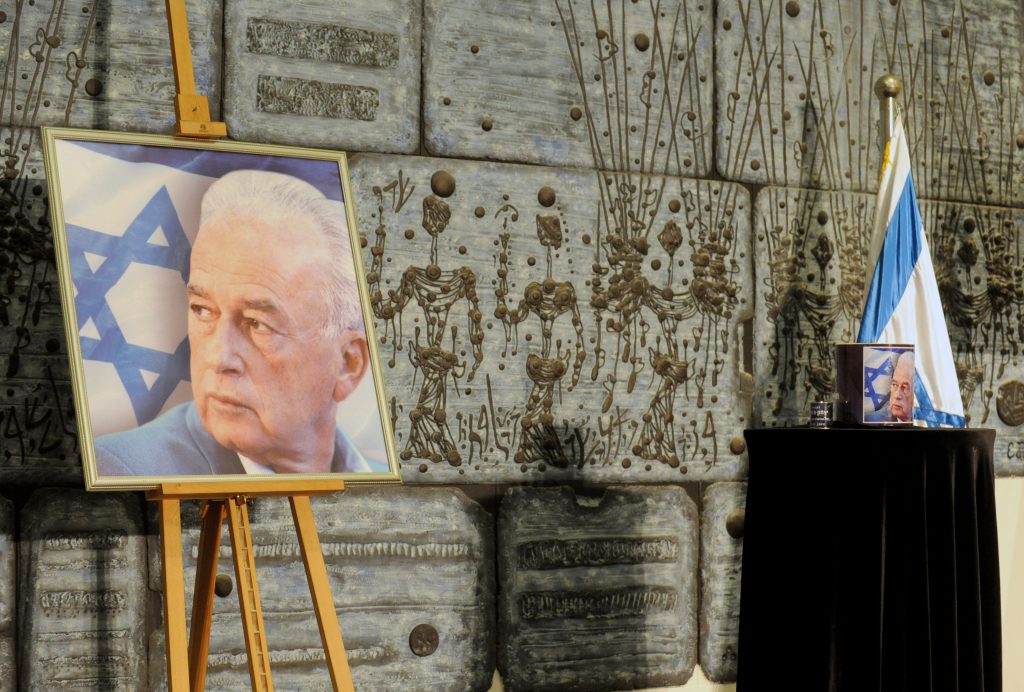Could a political assassination still occur in Israel today? Has the danger passed? Thirty years have gone by, full of fierce internal struggles, yet without an outbreak of extreme violence.
Exactly 30 years ago, my life was turned upside down. On Saturday night, at midnight, the phone rang insistently. On the line was a CNN correspondent: “We’ve heard that the assassin is a student in the law faculty at Bar-Ilan University, where you are dean.”
That is how I learned, with revulsion, of the assassination of prime minister Yitzhak Rabin z”l (may his memory be a blessing). The next morning, I ran into a neighbor from my building, a professor at the Hebrew University. He looked at me angrily and snapped: “What have you done to us?” That is how I first encountered the idea that there is an “us,” the murdered, and a “you,” the religious among whom I am counted – the murderers.
I was shocked that the murderer acted, by his own account, out of religious motives. It was a dramatic illustration of the difficulties religion – shaped over two thousand years of exile – faces when confronting the most important Jewish phenomenon of our generation: the State of Israel.
I was shocked that the killer of statehood, embodied in the prime minister, drew legitimacy for his despicable act from ideological allies, including secular ones, who shared his ultra-nationalist positions. I was shocked by the social polarization that followed the assassination, which opened an ugly, jagged-toothed mouth against the “other” along sectoral lines.
In the wake of Rabin’s assassination, I decided to shift the focus of my work and research from corporate and financial law to public and religious law, out of an understanding that there is a danger of losing our national independence once again – like in the time of the destruction of the Temple – through the eruption of an Israeli war of brothers, a civil war.
Could a political assassination still occur in Israel today? Has the danger passed? Thirty years have gone by, full of fierce internal struggles, yet without an outbreak of extreme violence. Two events from those 30 years are noteworthy for not breaking into violence.
During the Gaza Disengagement, the “orange” camp, which experienced a humiliating expulsion, the destruction of a life’s work, and the reversal of a messianic-redemptive movement, showed incredible restraint and evacuated without violence. During the judicial overhaul period, the hundreds of thousands who demonstrated against what they perceived as the wrecking of democracy and the loss of their future also showed great restraint.
Few democratic societies have seen struggles over the very soul of a broad public conducted with such fervor, yet without resorting to firearms. It seems the lesson of Rabin’s assassination was learned.
YET, A recent survey by the Jewish People Policy Institute (JPPI) shows that 81% of Israelis fear that there is a chance of a political assassination, and roughly half of the public thinks the likelihood is high. This fear is justified, as the root causes of the political violence that led to Rabin’s murder have not been addressed, and therefore, the danger remains.
Rabin’s assassination had a religious motive. The Oslo Accords created a conflict between some rabbis and the sovereign. The proclamation by hundreds of rabbis decrying the Oslo Accords under the banner of da’at Torah [the Torah’s opinion], treating it as a binding halachic ruling, is etched in infamy. Although there has been a certain sobriety about the destructive consequences of mixing Halacha and politics since Rabin’s assassination, it is clear that a body of serious religious thought on the meaning of sovereignty has yet to be developed.
Thus, the religious-Zionist rabbinate ridicules the state courts as “gentile tribunals” and undermines their legitimacy. Thus, the haredi rabbinate characterizes the IDF as a place “whose entrants do not return” – that haredi soldiers do not return from the military as haredim. These are expressions of the state’s lack of religious internalization. These are seeds of disaster, from which the conceptual leap to deadly violence, on religious grounds, against state officials, could be short.
Rabin’s assassination also had a political motive: The Right was pushed into a corner, and some of its extremist leaders, including the secular ones, claimed that the processes that led to the Oslo Accords lacked legitimacy, thereby implicitly “permitting” recourse to violence.
The situation today is even more serious: Social developments (the ongoing democratic crisis that drives the sectors apart), media dynamics (the ease of incitement and falsehood in the rough seas of social media), and geopolitical shocks (the October 7 massacre) have greatly raised the temperature of public life in Israel, and the possibility of a slide into violence hovers over us. Public trust in the state’s institutions – all of them – is at a historic low, which lowers inhibitions to act against the leaders who operate within them.
In light of these dangerous developments, are Israel’s authorities adequately dealing with inciters on both the Left and the Right? According to the JPPI survey, 80% of Israelis think the response is “less than it should be.” In other words, there is broad agreement that the mounting incitement must be addressed much more decisively.
We were privileged to be born as Jews in the generation of sovereignty. This imposes on all of us an enormous responsibility to treat the country and its leaders with respect. Sin crouches at the door.

